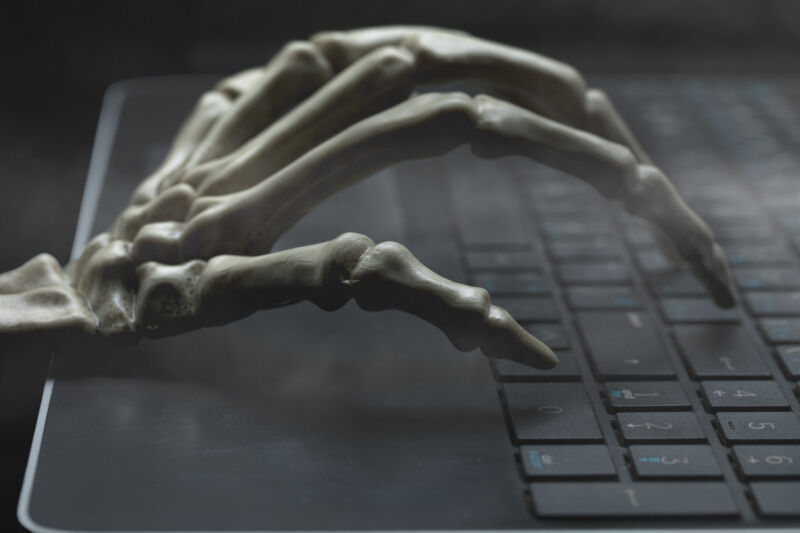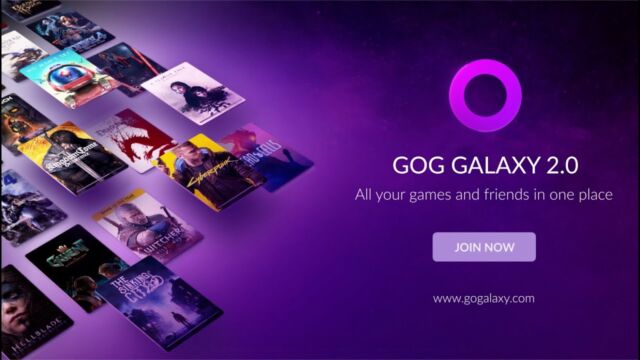
Getty Images
A few weeks ago, we called some attention to the legal difficulty of passing on your digital Steam game library after you die. While Valve hasn’t responded to a request for comment on the matter, PC gaming platform GOG tells Ars that it is ready and willing to help users transfer their accounts in the event of their death.
As long as they bring a court order, that is.
“In general, your GOG account and GOG content is not transferable,” GOG spokesperson Zuzanna Rybacka tells Ars. “However, if you can obtain a copy of a court order that specifically entitles someone to your GOG personal account, the digital content attached to it, taking into account the EULAs of specific games within it, and that specifically refers to your GOG username or at least email address used to create such an account, we’d do our best to make it happen.”
A legal minefield
Absent a binding court order, there are a few factors that GOG says make it difficult for them to simply transfer an account at the request of a user (or of that user’s last will and testament). At the base is the fact that GOG accounts and content are subject to limited, personal, non-transferable licenses—”This is the standard for digital services and goods,” Rybacka points out. In addition, “every game distributed on GOG can be subject to a separate EULA (End User License Agreement) which can separately detail what scope of rights is given to a user of a game,” Rybacka said.
Beyond that, there’s the matter of even establishing beyond a shadow of a doubt that a certain account belongs to a specific person. “As you may know, GOG does not collect information sufficient to truly identify a particular person (such as name and surname) or their family or marital status,” Rybacka said. “For this reason, we are not able to establish that someone is related to a particular user or that a particular user has passed away.”
Even a sworn statement from the executor of a user’s estate making clear their wishes would not be enough to fully cover the platform legally, GOG said. “As this is a particularly complex and delicate matter, we would need to be provided with a legal basis for the estate executor’s actions that relates specifically to GOG account and that settles that GOG account and possibly content tied to this are part of such estate,” GOG said.
GOG told Ars it wants to tread carefully in these situations because it “is a particularly delicate matter with little to no existing legal guidance.” Policies surrounding the transfer of digital ownership “[have] not been comprehensively regulated by any specific laws and because of this, we are bound by general law in this regard.”
That said, GOG said it is aware of “a few existing court decisions in which some persons were allowed to inherit an online account.” That suggests a court order as “a possible option, with our willingness to tackle such situations, in line with our games preservation mission,” the platform said.
“We’re willing to handle such a situation and preserve your GOG library—but currently we can only do it with the help of the justice system.”

GOG
While convincing a judge that your dead relative wanted you to have access to their GOG library might not always be the simplest process, a court order at least provides a viable path to getting such an account out of the legal limbo that usually enshrouds your digital goods after death. And it’s nice to hear that GOG is proactively interested in helping with this kind of situation, even if it currently needs some strong legal cover to do so.
Separate from handing down the account itself, though, GOG’s long-standing policy of offering downloadable games without any DRM protection makes handing down GOG games themselves into a relatively simple matter. “GOG game builds are DRM-free and offline installers are included with each purchase,” Rybacka said. “That way, if someone wants to save their offline games on, for example, an external hard drive, they will be preserved regardless of the account ownership.”

